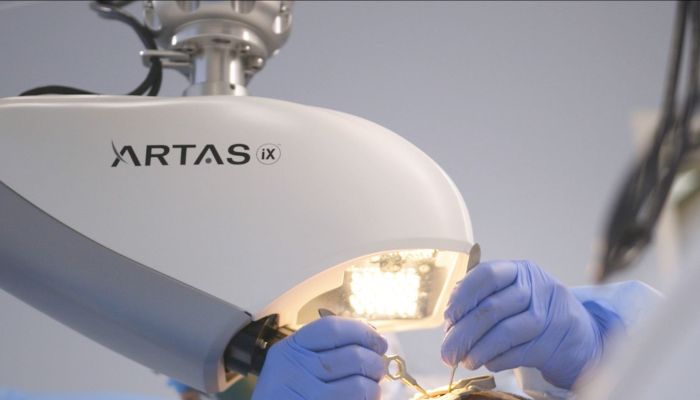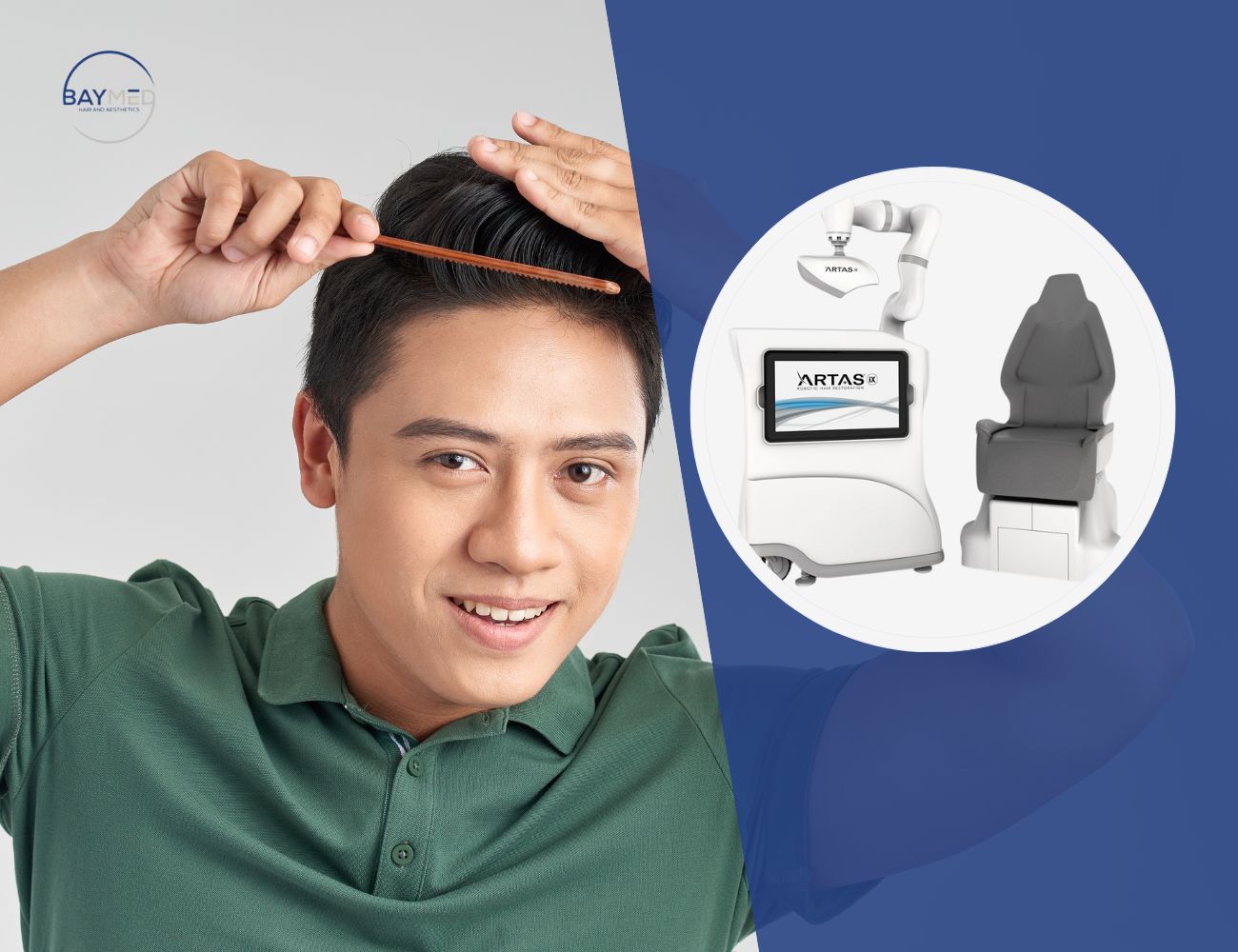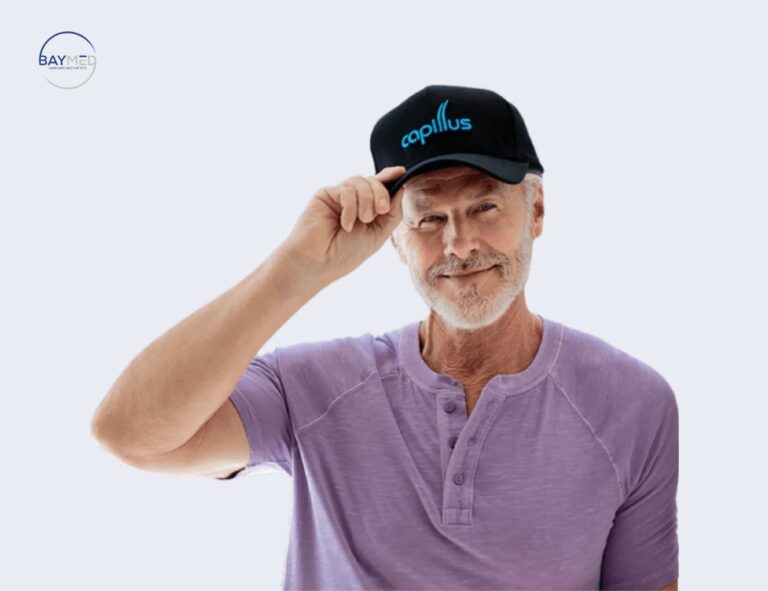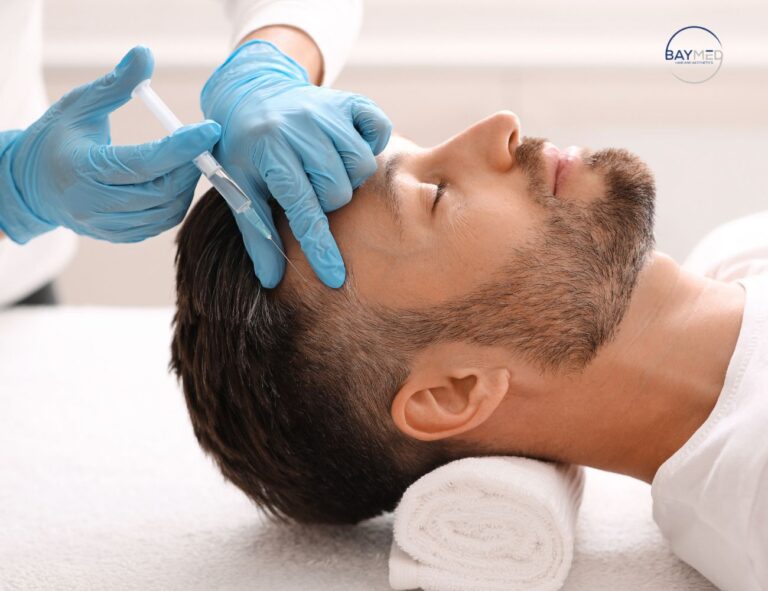Are you tired of the endless battle against hair loss, trying various remedies and products with little success? If you’re seeking a lasting solution that merges cutting-edge technology with natural-looking results, look no further. Say farewell to the frustration of baldness, and say hello to a new era of confidence and self-assurance with ARTAS Robotic Hair Restoration.
In the world of hair restoration, ARTAS stands out as a groundbreaking innovation that goes beyond traditional methods. This robotic technology has revolutionized the way we approach hair transplant procedures, offering precision, efficiency, and, most importantly, lasting results. In this blog post, we’ll delve into the remarkable world of ARTAS System, exploring how it works, why it’s gaining widespread acclaim, and how it can transform your journey to regaining a fuller, natural-looking head of hair. Get ready to embark on a path where cutting-edge technology meets the artistry of personalized hair restoration.
Table of Contents
What is Artas Robotic Hair Restoration?
ARTAS Robotic Hair Restoration is an advanced, state-of-the-art technology used for hair transplant procedures. It’s a minimally invasive method that utilizes robotics and artificial intelligence to assist surgeons in hair transplantation.
The Procedure Explained
Consultation and Planning:
- The process begins with a consultation where the patient’s hair loss pattern is assessed.
- The surgeon works with the ARTAS system to create a personalized, detailed plan for the transplantation, taking into account factors such as hair density, natural hairline shape, and the overall aesthetic goals of the patient.
Digital Mapping:
- The ARTAS system utilizes high-definition stereoscopic cameras and special imaging software to create a detailed 3D map of the patient’s scalp.
- This map is used to identify and analyze the healthiest and most robust hair follicles available for transplantation.
Robotic Harvesting:
- The robotic arm of the ARTAS system is equipped with advanced algorithms to identify and select individual hair follicles for extraction.
- It uses a small dermal punch to precisely harvest these follicles from the donor area (usually the back and sides of the scalp), leaving surrounding hair intact.
- The automated nature of the robotic harvesting reduces the risk of human error and ensures a consistent and precise extraction process.
Site Creation:
- Once the hair follicles are harvested, the ARTAS system assists in creating recipient sites on the targeted area of the scalp.
- The surgeon can customize the angle, depth, and distribution of these sites to mimic the natural growth pattern of the patient’s hair.
Implantation:
- The harvested hair follicles are then implanted into the recipient sites.
- The surgeon has the flexibility to strategically place the follicles to achieve a natural and aesthetically pleasing result.

Key Features and Benefits:
- Precision: The robotic system ensures precise and consistent extraction and placement of hair follicles, minimizing human error.
- Natural Results: Due to the accuracy in placement and the preservation of the natural hair growth pattern, the results tend to look more natural compared to some traditional methods.
- Minimally Invasive: It’s less invasive than traditional hair transplant techniques, leading to quicker recovery times and no linear scarring.
- Permanent Results: Once transplanted, the hair follicles continue to grow naturally. The transplanted hair is permanent, providing a long-term solution to hair loss concerns.
- Customization: The technology allows for a personalized and detailed hair restoration plan tailored to the individual’s unique characteristics.
- Reduced Downtime: Patients can typically resume their regular activities relatively quickly after the procedure.
Post-Treatment Care and Recovery
After undergoing ARTAS Robotic Hair Restoration, the post-treatment care and recovery process are relatively straightforward. Patients are advised to avoid strenuous activities for a few days to allow the transplanted hair follicles to settle. Mild swelling or redness at the treatment site is normal and typically subsides within a week. It’s crucial to follow the provided aftercare instructions, including gentle washing of the scalp to keep it clean and infection-free. Patients should also avoid direct sun exposure and protect their scalp with a hat when outdoors.
Regular follow-up appointments with the medical team ensure that the recovery is progressing as expected, and any concerns or questions can be addressed promptly, contributing to the overall success and satisfaction of the ARTAS Robotic Hair Restoration experience.

When Will Results Show?
The timeline for seeing results from ARTAS Robotic Hair Restoration can vary from person to person, but here’s a general overview:
- Initial Changes (2-4 Months): While some patients may start to notice early signs of hair growth as early as two to four months post-procedure, it’s important to be patient during this phase. The initial growth may be fine and subtle.
- Progressive Improvement (6-12 Months): The majority of patients experience more significant and noticeable hair growth between six and twelve months after the ARTAS procedure. During this time, the transplanted hair continues to thicken, and the overall density improves.
- Full Results (12-18 Months): The final results of ARTAS Robotic Hair Restoration are typically visible around 12 to 18 months after the procedure. By this time, the transplanted hair has matured, and you can appreciate the full extent of the improvement in terms of density and natural appearance.
Patience is key, as individual healing rates and the natural hair growth cycle can influence the timeline for achieving optimal results.
Is ARTAS Suitable for Everyone?
ARTAS Robotic Hair Restoration is a highly advanced and effective solution for many individuals experiencing hair loss. However, it may not be suitable for everyone. Generally, ARTAS is best suited for individuals with a stable donor hair supply, typically from the back or sides of the scalp, as this serves as the source for hair transplantation. Those with extensive hair loss or insufficient donor hair might not be ideal candidates. Additionally, factors like overall health, medical history, and realistic expectations play a crucial role in determining suitability. Consulting with a qualified specialist or surgeon experienced in ARTAS procedures is essential to assess candidacy and determine the most appropriate hair restoration options tailored to individual needs.
Summary
The ARTAS iX Robotic Hair Transplant System stands as a groundbreaking advancement in the field of hair restoration. Bid farewell to the challenges of baldness with a procedure that combines unparalleled precision, painless application, scar-free results, and swift recovery. The days of compromise between efficacy and aesthetics are over, thanks to this revolutionary technology. For those eager to explore a future with a fuller, more natural-looking mane, reaching out to our office is the first step. Don’t hesitate to contact us for further details or to schedule a consultation. Embrace the transformative journey toward lasting hair restoration with ARTAS iX.






